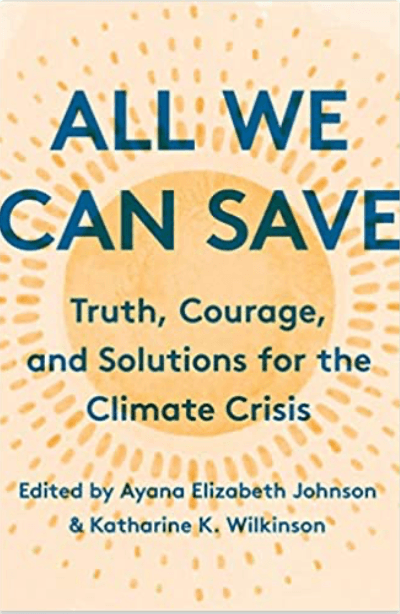As a writer and climate activist, I have a deep faith in our ability to heal the planet and ourselves. Even so, 2020 has been a heavy year, with the pandemic spreading, inequality growing, and our democracy fraying — all against a backdrop of wildfires and hurricanes.
Our leaders have been focused on short-term profits for the few over lasting solutions for the many. That jig is up. The multiple crises we face call for a reckoning and a better way forward.
Case in point: The West Coast is in the midst of its most active fire year on record, and fire season is still going strong. More than 4 percent of California’s total land area has burned.
These climate-driven blazes are beyond what is “normal” for fire country. More troubling still, that smoky air makes the current pandemic more dangerous, and COVID-19 in turn raises the danger level for evacuees  and first responders. The combination of disasters makes it imperative to act now and act wisely.
and first responders. The combination of disasters makes it imperative to act now and act wisely.
Fire will always be a part of the landscape, but steps can be taken at every level to reduce the climate conditions that have pushed them out of balance.
Long-term safety requires big, bold actions to end the use of fossil fuels and reshape industrial agriculture. More immediately, measures need to be put in place to make homes and buildings fire-safe, to improve emergency response plans, and to update wildfire hazard maps.
These are practices backed by science and proven in real world success. They are measures supported by the Sierra Club and other environmentalists who are moving the conversation about fires from the back country to the front lines.
We need to get back into alignment with the natural world and with each other. That might mean making tough decisions about where and how to rebuild and supporting communities as they confront difficult choices. Care and collaboration must have prominent seats at the table.
So too must diverse voices. Like many disasters, wildfires worsen existing vulnerabilities and inequities, particularly for women.
Women are more likely to be admitted to the hospital for respiratory problems during days with heavy smoke. They are almost twice as likely to have asthma, and much more likely to be sent to the emergency room for asthma-related conditions following a fire. We must listen to those under greatest strain from the problem and be guided by their answers to it.
Women are also leading the way toward new fire management solutions, and doing so in a way that can heal systemic injustices.
A bill introduced by Sen. Kamala Harris puts communities firmly in the center of response and preparation efforts. It ensures that the needs of the most vulnerable, including the elderly and those with disabilities, are included in emergency planning — and that low-income, high-risk communities can access grants to support fire safety efforts.
At the same time, Sen. Harris has supported climate policies that hold the oil and gas industry accountable for its pollution.
Harris and other forward-looking leaders demonstrate how we can hold our gaze on the now while we build a more inclusive and sustainable future. Both are necessary.
The only way to bear the cascading crises of 2020 is to share the burden. By linking arms and using the suite of available solutions — renewable electricity, redesigned mobility, restored ecosystems, reimagined food systems — we can meet long-term climate goals and urgent near-term needs for those living with climate-driven disasters.
We have the tools for a resilient and regenerative future. What’s needed is the collective courage to wield them with an eye toward justice. For coping with fire, as for lasting climate progress, the answer lies in community.